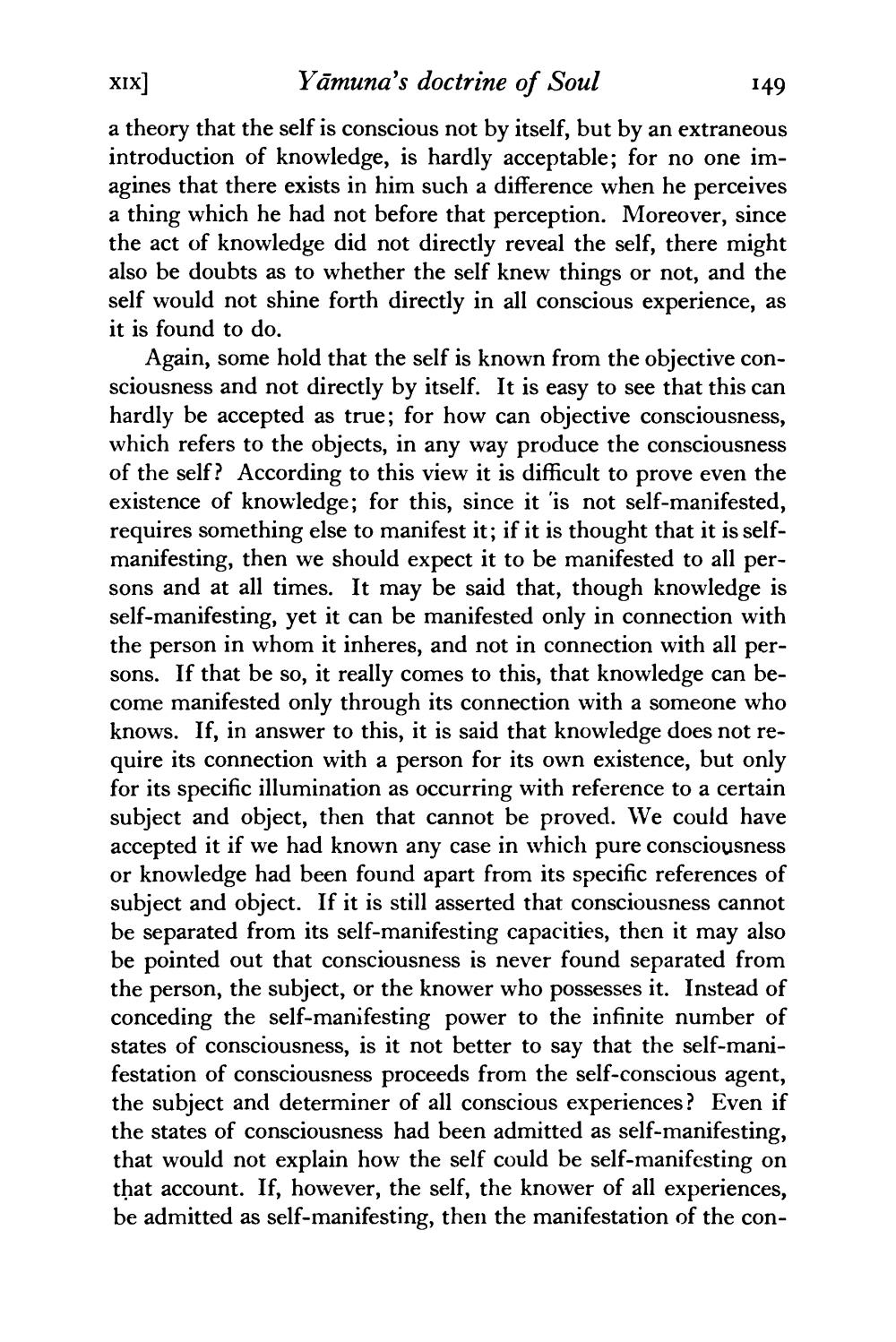________________
xıx] Yāmuna's doctrine of Soul
149 a theory that the self is conscious not by itself, but by an extraneous introduction of knowledge, is hardly acceptable; for no one imagines that there exists in him such a difference when he perceives a thing which he had not before that perception. Moreover, since the act of knowledge did not directly reveal the self, there might also be doubts as to whether the self knew things or not, and the self would not shine forth directly in all conscious experience, as it is found to do.
Again, some hold that the self is known from the objective consciousness and not directly by itself. It is easy to see that this can hardly be accepted as true; for how can objective consciousness, which refers to the objects, in any way produce the consciousness of the self? According to this view it is difficult to prove even the existence of knowledge; for this, since it 'is not self-manifested, requires something else to manifest it; if it is thought that it is selfmanifesting, then we should expect it to be manifested to all persons and at all times. It may be said that, though knowledge is self-manifesting, yet it can be manifested only in connection with the person in whom it inheres, and not in connection with all persons. If that be so, it really comes to this, that knowledge can become manifested only through its connection with a someone who knows. If, in answer to this, it is said that knowledge does not require its connection with a person for its own existence, but only for its specific illumination as occurring with reference to a certain subject and object, then that cannot be proved. We could have accepted it if we had known any case in which pure consciousness or knowledge had been found apart from its specific references of subject and object. If it is still asserted that consciousness cannot be separated from its self-manifesting capacities, then it may also be pointed out that consciousness is never found separated from the person, the subject, or the knower who possesses it. Instead of conceding the self-manifesting power to the infinite number of states of consciousness, is it not better to say that the self-manifestation of consciousness proceeds from the self-conscious agent, the subject and determiner of all conscious experiences? Even if the states of consciousness had been admitted as self-manifesting, that would not explain how the self could be self-manifesting on that account. If, however, the self, the knower of all experiences, be admitted as self-manifesting, then the manifestation of the con




